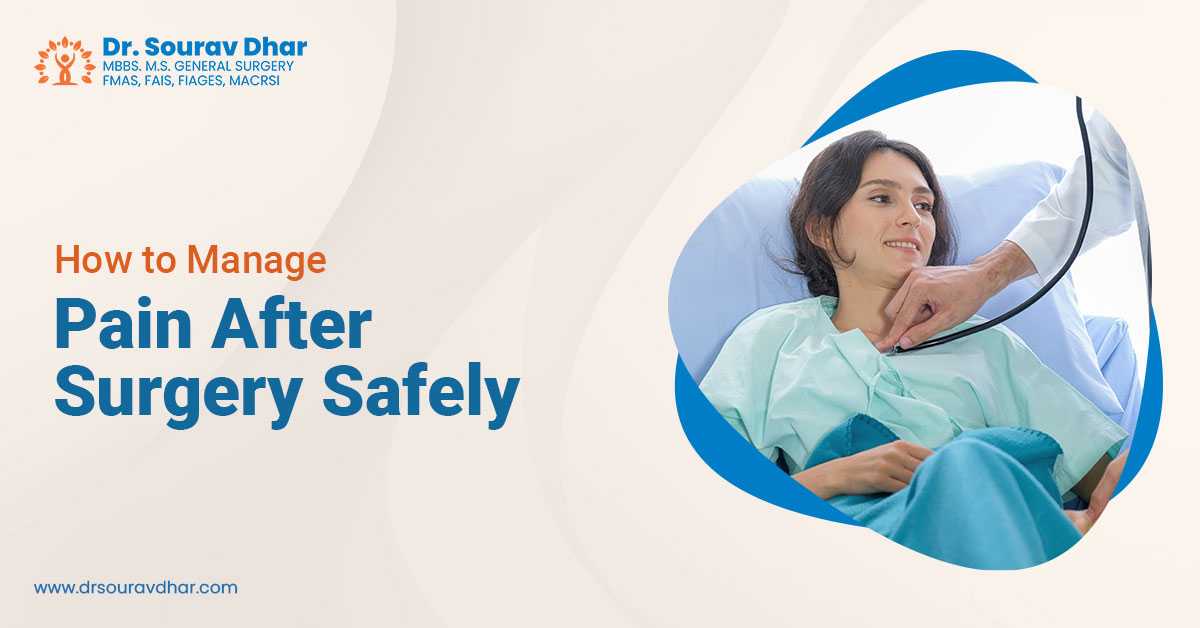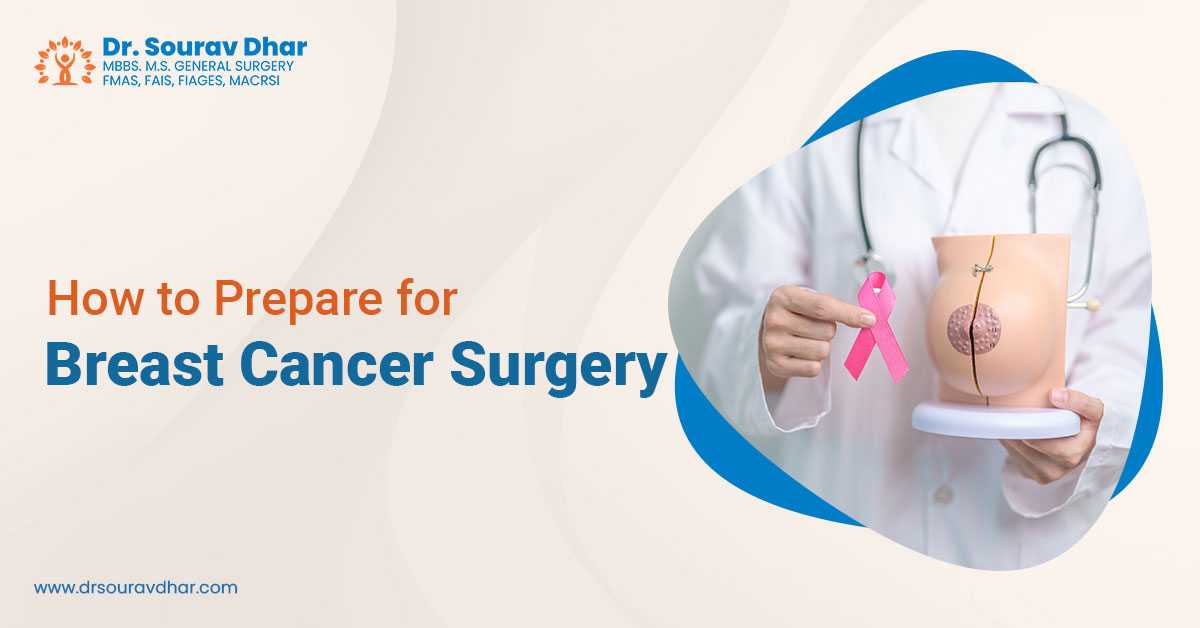Ever wonder, "Do I need surgery for this?" Or Googled "When should I talk to a general surgeon?" Yes, some health signs and symptoms lead us to do such things many times before visiting a doctor or surgeon.
A general surgeon's training includes diagnosing and treating a wide range of illnesses that call for surgery. And many of which are easier to manage when diagnosed early. Here, this blog gives you information about the signs you need a general surgeon.
We know that going for consulting a general surgeon is usually not considered until it is absolutely essential. However, being aware of the early signs can help you avoid health discomfort, difficulties, or crises.
What Does a General Surgeon Do?
Now, let's first define what general surgeons do in brief before moving on to the warning signs.
Medical experts who specialize in surgeries affecting the abdomen, digestive tract, skin, soft tissues, and other areas in the body are known as general surgeons. They treat both routine treatments (like gallbladder removal or hernia repair), breast surgery, endoscopy, hernia repair, and emergency surgeries (like appendicitis).
Let’s Talk about the Signs that You Should Arrange a Consultation with a General Surgeon
1. Persistent Abdominal Pain
With ongoing abdominal pain, you may be wondering why my stomach pain won't go away. Severe or persistent stomach (abdominal) pain may indicate a serious condition such as gallstones, hernias, appendicitis, or even gastrointestinal problems that may need surgery.
Make sure you do not ignore it if the pain is severe, ongoing, or comes with fever or nausea. Visiting a general physician is also advisable here, who may suggest several tests, including ultrasound, blood tests, endoscopy, etc.
When you see a general surgeon, upon diagnosis, your doctor will decide if surgery or medication is necessary for your situation.
2. A Lump or Bump That Doesn’t Go Away
If you notice a skin lump or mass, feel free to see and ask your general surgeon that I have noticed a lump under my skin; should I be worried? A lipoma, cyst, abscess, or even a tumor might be the cause of a lump, swelling, or mass beneath your skin.
You may find this lump red, painful, or growing. Even though most lumps are benign, some need to be removed, or your doctor may advise a biopsy to rule out the underlying cause.
3. Gallbladder Problems (Gallstones or Inflammation)
Sharp pain after eating, especially from fatty meals, can be caused by gallstones, and other vital signs and symptoms include:
-
Bloating
-
Feeling queasy
-
Throwing up
-
Pain in the right shoulder or back
Cholecystitis refers to an inflammation of the gallbladder that more often necessitates emergency surgery, caused by gallstones if treatment is not received.
4. Chronic Acid Reflux or Difficulty Swallowing
If your GERD doesn't improve with medicine, it might be a sign that something needs further attention. In some cases, it can be a hiatal hernia or structural issues with your esophagus. Your primary care doctor may suggest seeing a general surgeon if medication and lifestyle changes don’t work. See a general surgeon if you've got:
-
Severe acid reflux
-
Swallowing with pain
-
Unexplained weight loss
-
Regurgitation
It may be time to consult an expert and undergo more diagnostic tests. Surgical attention can give long-term relief in various health situations. At this point, you may need surgery or a diagnostic procedure.
5. You Have a Hernia Or Suspect One
Tissue pressing through weak areas in your abdominal wall can lead to bulges known as hernias. Although they are very common, they don't go away on their own, and some of them might cause problems if you don't treat them with surgery.
Here are some signs you may need a general surgeon, besides your primary physician recommending:
-
A noticeable bulge, particularly when you are lifting or coughing
-
Pain or discomfort at the site
-
A sensation of pressure or weight
If you have a question in mind Does my hernia require surgery?" Even if a hernia isn't uncomfortable currently, you may eventually need surgical treatment.
6. Rectal Bleeding or Changes in Bowel Habits
Visit your general physician if you notice bloody stools even for a single time. Hemorrhoids, anal fissures, polyps, or even colon cancer may be indicated by blood in your stool. And other signs here may include:
-
Persistent constipation
-
Diarrhea
-
Unusual changes in your bowel habits
-
With or without pain
Some of them are minor problems, while others need immediate medical attention or surgery in the long run. If necessary, your general surgeon can do biopsies, surgical excisions, or colonoscopies.
7. Infected Wounds or Non-Healing Sores
Have you just noticed an abscess, cut, or sore that isn't going away or healing? These might get contaminated or point to a more serious problem. These may include immunological malfunction, poor circulation, or complications from uncontrolled diabetes.
To avoid severe infections, it may need to be surgically cleaned or drained if you see growing redness, pus, warmth, or discomfort. Seek assistance from a highly trusted general surgeon near you.
8. Breast Lumps or Changes
While not all breast lumps are cancerous, any new, uncomfortable, or developing tumor should be checked without delay. In order to diagnose and treat breast cancer, general surgeons frequently conduct lumpectomies and breast biopsies.
Avoid waiting if you notice:
-
Discharge from the breasts
-
Dimpling of the skin
-
Size or form changes
-
A solid, unmoving lump
You may consult your gynecologist first.
9. Unexplained Weight Loss or Loss of Appetite
Unintentional weight loss, exhaustion, and digestive problems, as well as appetite loss, may indicate a more serious problem. In case you don’t feel relieved with medications or lifestyle advice given by your general physician, your doctor may suggest consulting a surgeon.
Many times, ultrasonography or CT scan reports show something that needs attention from a general surgeon. A gastrointestinal tumor or persistent inflammation may need more clinical diagnosis for a clear understanding.
A diagnostic laparoscopy can be of great help; it is a minimally invasive procedure, many times performed to examine your internal organs.
10. Your Primary Care Physician Advises
Referrals from your primary care physicians are perhaps the most obvious signs that you need to visit a general surgeon. Surgical consultations are usually advised by doctors for:
-
Abnormal growth biopsies
-
Assessment of persistent discomfort
-
Monitoring of abnormal or suspicious lab or imaging results
General surgeons can offer a precise diagnosis, second opinions, and a course of treatment, even if surgery is not immediately necessary.
Emergency Signs: When to Take Quick Action
In such situations, one should be taken to the emergency room or a general surgeon right away, and these include:
-
Abdominal discomfort that comes on suddenly and badly
-
Blood in the vomit
-
Unbearable abdominal pain
-
Abdominal discomfort and a high temperature
-
Tarry or black stools
-
A hernia that becomes painful or rigid
These might be signs of serious health issues, such as intestinal bleeding, bowel blockage, a tumor, or appendicitis.
Be sure you do not wait if you or your near one has any of the symptoms discussed above. For a professional diagnosis, you should get in touch with a highly experienced general surgeon in your area. Catching these symptoms early and visiting a doctor fast can improve your health, recovery time, and outcomes. You may reach out to the best general surgeon in Siliguri, Dr. Sourav Dhar, or at your nearest location.




